Table of Contents
- Introduction
- Early Days
- Challenges Faced
- Progress Made
- Successful Campaigns
- Community Outreach
- Looking Towards the Future
Introduction
This article delves into the history and journey of the polio vaccine in Pakistan, showcasing the significant milestones achieved over the years.
Early Days
Explore the initial stages of the polio vaccine introduction in Pakistan and how the nation embraced this crucial immunization method.
Polio, a highly infectious disease caused by the poliovirus, was a major concern in Pakistan during its early days. The country faced a high number of polio cases, leading to severe consequences such as paralysis and death.
In order to combat this disease, various initiatives were taken to introduce and administer polio vaccines across the country.
One of the major milestones in Pakistan's polio vaccine history was the introduction of oral polio vaccine (OPV) in the 1970s. OPV was chosen due to its easy administration and cost-effectiveness. The government, along with international organizations, launched nationwide vaccination campaigns to reach children in even the most remote areas.
However, despite these efforts, there were several challenges in the early days. Misinformation and lack of awareness among communities about the benefits of the polio vaccine led to resistance and skepticism. Cultural and religious beliefs also posed obstacles, with rumors spreading that the vaccine was harmful or even part of a larger conspiracy.
Over time, through extensive advocacy and education campaigns, the perception of polio vaccination began to change. Religious leaders and community influencers played a crucial role in dispelling myths and promoting the importance of vaccinating children. They assured the public that the vaccine was safe and necessary for protecting future generations.
Slowly, the vaccination coverage expanded, reaching more children in remote areas. Efforts were made to build trust within communities and address their concerns. Polio vaccination teams were trained to communicate effectively, addressing questions and building confidence among parents and caregivers.
Thanks to these collective efforts, the number of polio cases in Pakistan gradually decreased. The country moved closer to achieving its goal of complete eradication.
Today, Pakistan continues to make progress in its fight against polio. The government, alongside international partners and organizations, works tirelessly to ensure the availability and accessibility of polio vaccines to every child in the country.
The early days in the polio vaccine history of Pakistan highlight the challenges faced and the determined efforts made to protect future generations from this debilitating disease.
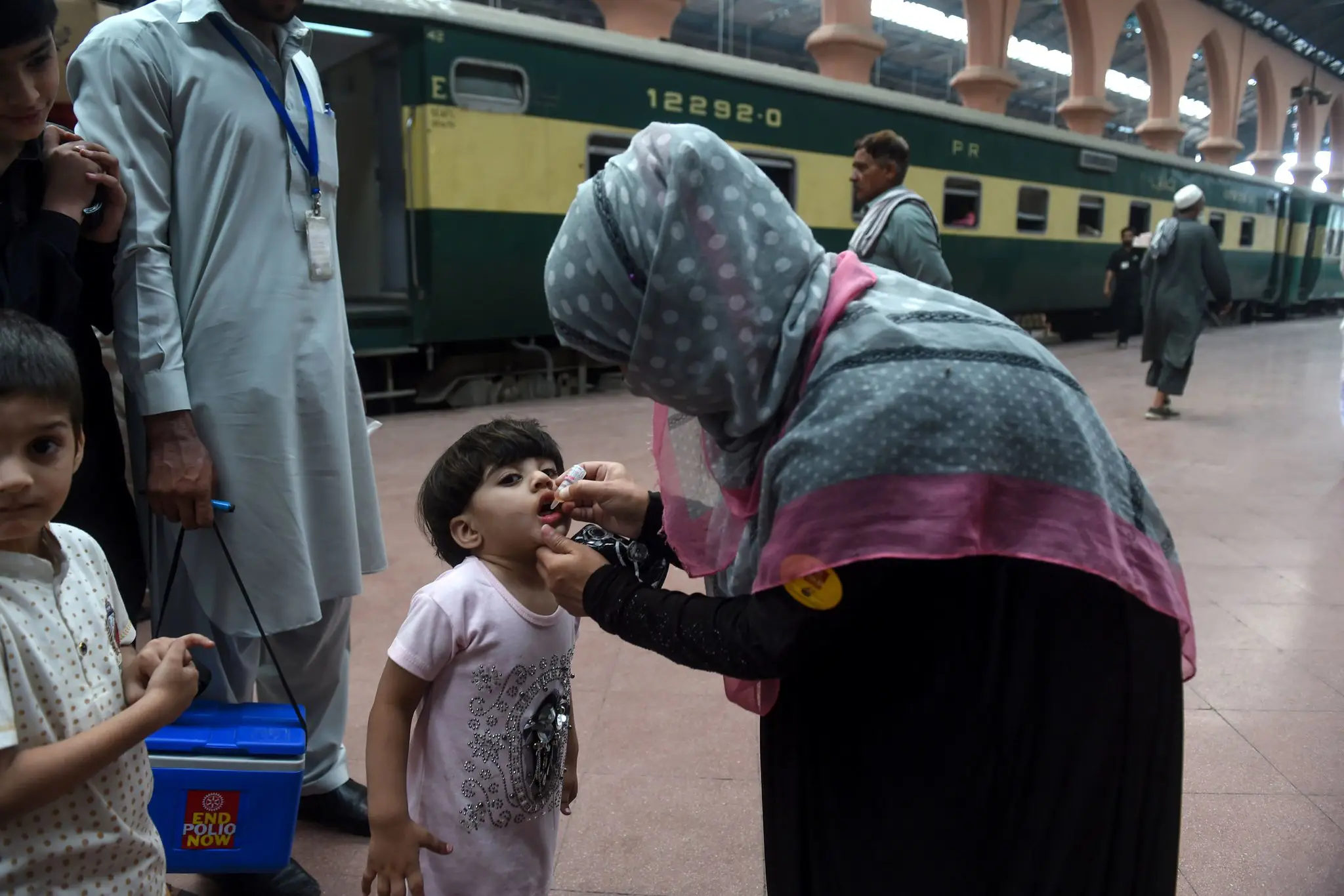
Challenges Faced
Uncover the various obstacles encountered during the implementation of polio vaccination campaigns and understand how Pakistan addressed them.
Pakistan has encountered numerous challenges in its polio vaccine history, hindering the eradication efforts. Some of the key challenges include:
1. Security Concerns
Pakistan's polio vaccination campaigns have been heavily affected by security concerns, particularly in regions affected by terrorist activities and conflicts. Vaccination teams often face threats and attacks, making it challenging to reach vulnerable children in these areas.
2. Misinformation and Myths
Misinformation and myths surrounding the polio vaccine have posed a significant challenge. False rumors and misconceptions have spread among certain communities, leading to vaccine hesitancy. Addressing these misconceptions and promoting accurate information is crucial to overcome this challenge.
3. Inaccessibility in Remote Areas
Pakistan's diverse geography, including remote and hard-to-reach regions, presents difficulties in delivering polio vaccines. Limited infrastructure, lack of transportation, and harsh terrains make it challenging for vaccination teams to reach every child, leaving pockets of unvaccinated populations.
4. Resistance from Local Leaders
Some local leaders and influential figures have opposed polio vaccination campaigns, citing various reasons, such as conspiracy theories or religious beliefs. Their resistance undermines the vaccination efforts and necessitates engagement and cooperation to ensure the acceptance and implementation of vaccination programs.
5. Low Socioeconomic Conditions
Socioeconomic factors, such as poverty, illiteracy, and lack of access to healthcare, contribute to the challenges faced in polio vaccine history in Pakistan. Limited resources and awareness hinder the successful implementation of vaccination programs, particularly among disadvantaged communities.
6. Polio Travel Restrictions
Pakistan's polio cases have resulted in travel restrictions imposed by other countries. These restrictions affect trade, travel, and the overall image of the nation. The need to control polio transmission and eradicate the disease is critical for Pakistan to overcome these travel restrictions and improve its global standing.
Addressing these challenges is essential for Pakistan to successfully eradicate polio from its population. By overcoming security concerns, dispelling myths, improving access in remote areas, engaging local leaders, addressing socioeconomic issues, and ensuring effective vaccination campaigns, Pakistan can work towards a polio-free future.
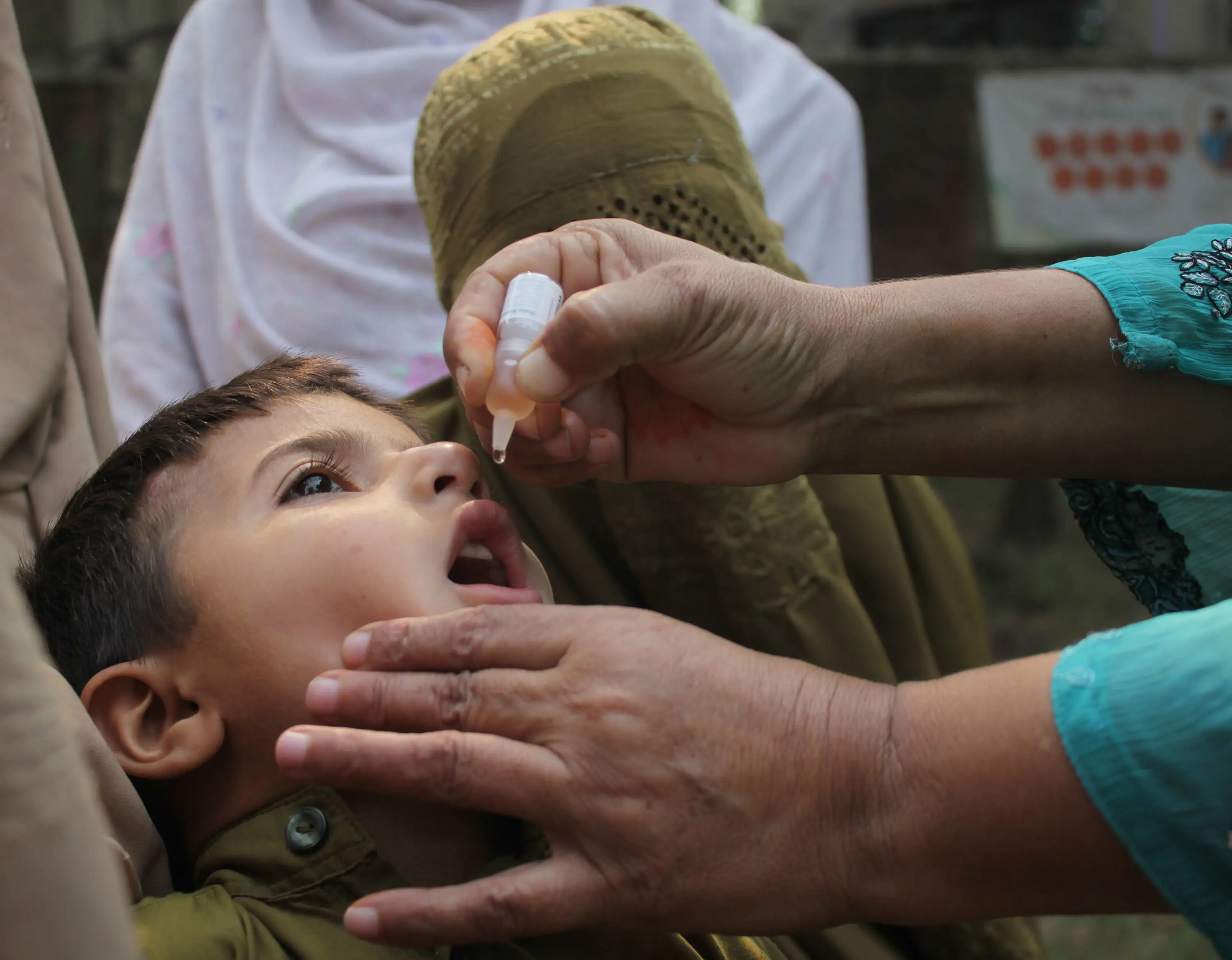
Progress Made
Discover the progress achieved in the fight against polio, including a reduction in the number of cases and successful vaccination drives.
Polio, a highly infectious viral disease, had been a major concern in Pakistan for several years. However, significant progress has been made in the history of polio vaccine in the country, with notable achievements in eradicating this disease.
Vaccination Campaigns
Pakistan has implemented numerous vaccination campaigns to control and eliminate polio. The country has adopted a door-to-door vaccination strategy to ensure that every child receives the necessary doses. Health workers visit households, vaccinate children, and educate parents about the importance of vaccination.
Collaboration with Global Initiatives
Pakistan has actively collaborated with global initiatives such as the World Health Organization (WHO), United Nations International Children's Emergency Fund (UNICEF), and Rotary International to combat polio. These partnerships have played a vital role in the successful vaccination campaigns across the country.
Infrastructure Development
Investments in healthcare infrastructure have significantly contributed to the progress in polio vaccination. Pakistan has strengthened its healthcare system by improving facilities, training healthcare workers, and ensuring the availability of vaccines even in remote areas. This has helped reach a larger population and effectively control the spread of the virus.
Reduction in Polio Cases
The efforts made in polio vaccine history in Pakistan have resulted in a significant reduction in polio cases. The number of reported polio cases has drastically decreased, showing the effectiveness of vaccination campaigns and ongoing initiatives.
Challenges and Future Goals
Although progress has been made, challenges persist in eliminating polio entirely. Sociocultural barriers, misinformation, and resistance in certain areas hinder vaccination efforts. However, Pakistan remains committed to achieving a polio-free status by intensifying vaccination drives, improving healthcare infrastructure, and enhancing community awareness.
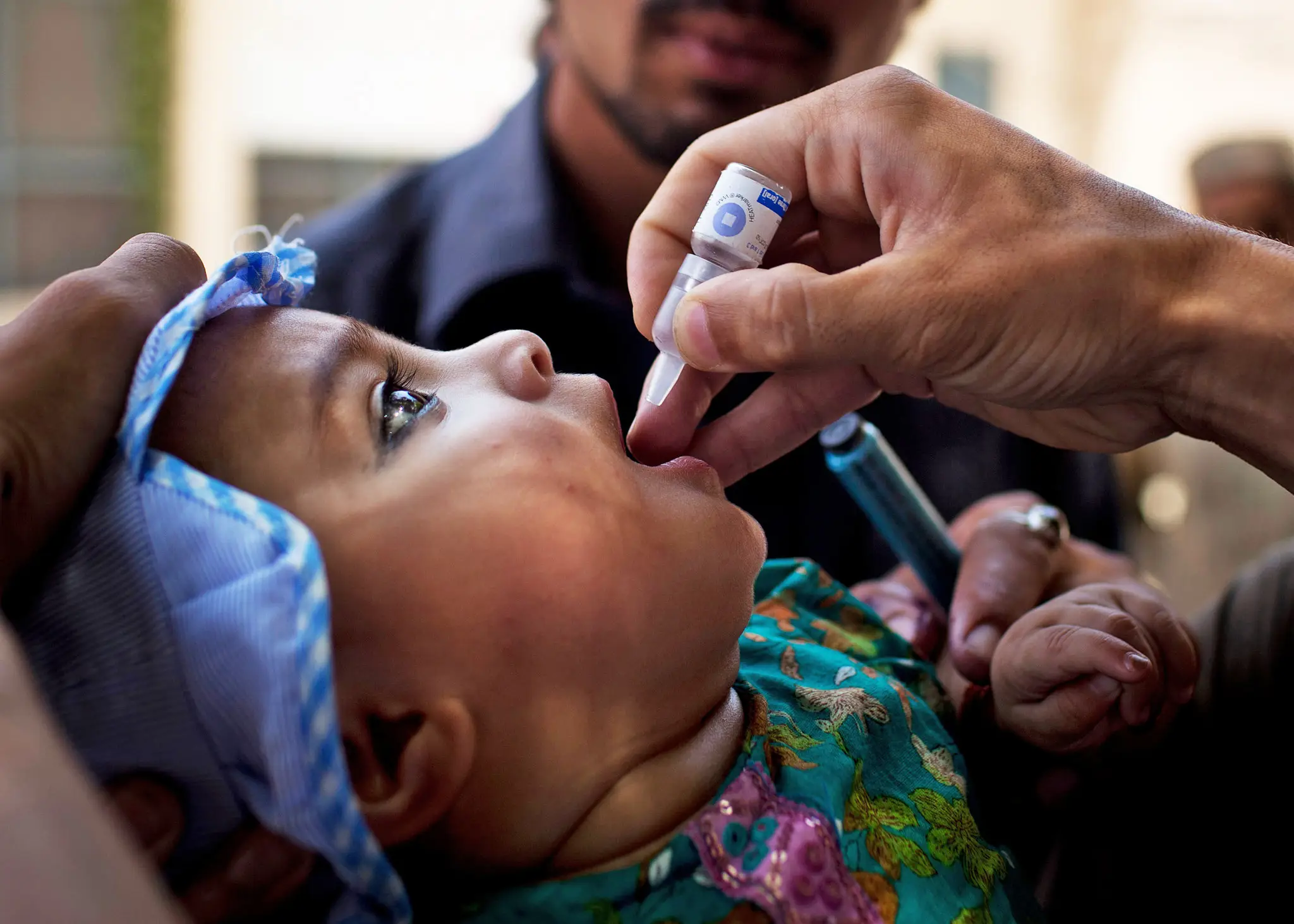
Successful Campaigns
Delve into some of the highly effective polio vaccination campaigns carried out in Pakistan, showcasing their impact on the country's health landscape.
Pakistan has made significant progress in its fight against polio, thanks to successful vaccination campaigns that have helped reduce the number of polio cases in the country.
One noteworthy campaign was the National Immunization Days (NID), which began in 1994. During these NID campaigns, health workers, volunteers, and organizations went door-to-door to administer polio drops to children under the age of five. This strategy helped reach remote areas where accessibility was a challenge.
Another milestone in Pakistan's polio eradication efforts was the Sehat Ka Ittehad (Alliance for Health) campaign launched in 2013. This campaign aimed to address misconceptions and dispel myths surrounding polio vaccination. Through targeted media campaigns, public awareness activities, and community engagement, the initiative effectively communicated the importance of polio vaccination and encouraged people to participate.
The Emergency Action Plan (EAP) for Polio Eradication was another successful campaign introduced in 2014. It involved enhanced surveillance, improved immunization campaigns, and extensive coordination between various stakeholders. The EAP's implementation resulted in the reduction of polio cases and provided valuable insights for future campaigns.
Furthermore, Pakistan's polio vaccination campaigns have benefitted from partnerships with international organizations such as the World Health Organization (WHO), UNICEF, and the Bill and Melinda Gates Foundation. These partnerships have provided technical support, financial resources, and expertise, aiding the country's efforts in eradicating polio.
Despite the challenges faced, Pakistan's successful campaigns in polio vaccine history highlight the commitment and collective efforts of its government, health workers, communities, and international partners. They serve as an inspiration and provide a roadmap for countries still fighting to eradicate this devastating disease.
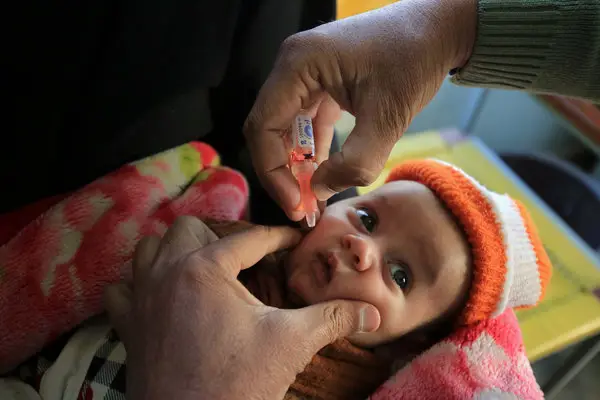
Community Outreach
Explore the vital role played by community outreach programs in spreading awareness, addressing misconceptions, and ensuring widespread polio vaccine coverage.
In Pakistan, community outreach has played a crucial role in the history of polio vaccine campaigns. Polio, a highly contagious viral infection that primarily affects young children, has been a persistent issue in the country for many years.
Due to its widespread impact, the government and various organizations have made extensive efforts to eliminate polio from Pakistan. One key strategy has been the implementation of community outreach programs aimed at raising awareness and increasing polio vaccination coverage.
Community outreach in the context of polio vaccine history refers to initiatives that involve engaging with local communities, building trust, and delivering important information about the vaccine. These programs often rely on community leaders, healthcare workers, and volunteers who actively work together to address the misconceptions and concerns surrounding vaccination.
One of the primary goals of community outreach is to overcome the barriers that hinder polio vaccination campaigns. These barriers can range from cultural and religious beliefs to accessibility issues in remote areas. By establishing strong connections within communities, the outreach programs can effectively address these challenges and provide accurate information about the benefits and safety of the polio vaccine.
Community outreach activities often include door-to-door visits, public meetings, awareness campaigns, and educational sessions. Through these initiatives, healthcare workers and volunteers engage directly with families, answering their questions, and addressing any concerns they may have about the vaccine.
Over the years, community outreach efforts in Pakistan have proven to be instrumental in combating polio. They have contributed significantly to increasing polio vaccination rates and creating a positive attitude towards immunization among the population.
Despite the progress made, challenges still remain. However, the ongoing commitment and dedication to community outreach continue to pave the way towards a polio-free Pakistan.

Looking Towards the Future
Gain insight into Pakistan's future plans for eradicating polio, focusing on strategies, collaborations, and the collective effort needed to achieve a polio-free nation.
In Pakistan, the fight against polio has been ongoing for several decades. Despite numerous challenges, the country has made significant progress in its polio vaccine history and is now looking towards a polio-free future.
Polio, a highly infectious disease caused by the poliovirus, can cause permanent paralysis and even death. It primarily affects children under the age of 5. Pakistan was one of the last few countries in the world where polio was endemic. However, the country has made great strides in combating the disease through a robust immunization program.
The history of polio vaccine in Pakistan dates back to 1974 when the first nationwide polio vaccination campaign was launched. Since then, numerous efforts have been made to vaccinate children across the country. The government, along with international organizations and healthcare workers, has been actively involved in raising awareness about the importance of immunization and delivering the polio vaccine to even the most remote areas.
Despite facing several obstacles such as cultural misconceptions, security concerns, and vaccine hesitancy, Pakistan has made significant progress. In recent years, the number of polio cases has dramatically reduced, giving hope for a polio-free future. This achievement is a testament to the tireless efforts of healthcare workers, volunteers, and organizations working together to protect the health of children in Pakistan.
Looking towards the future, Pakistan aims to completely eradicate polio from its soil. The country continues to conduct regular vaccination campaigns, ensuring every child receives the required doses of the polio vaccine. In addition, monitoring and surveillance systems have been strengthened to quickly detect and respond to any polio cases or outbreaks.
Pakistan's determination and commitment to eradicating polio is unwavering. With the support of the global community, the country aims to create a future where no child in Pakistan suffers from polio. The journey towards a polio-free Pakistan may have been challenging, but it is a testament to the resilience and dedication of all those involved.
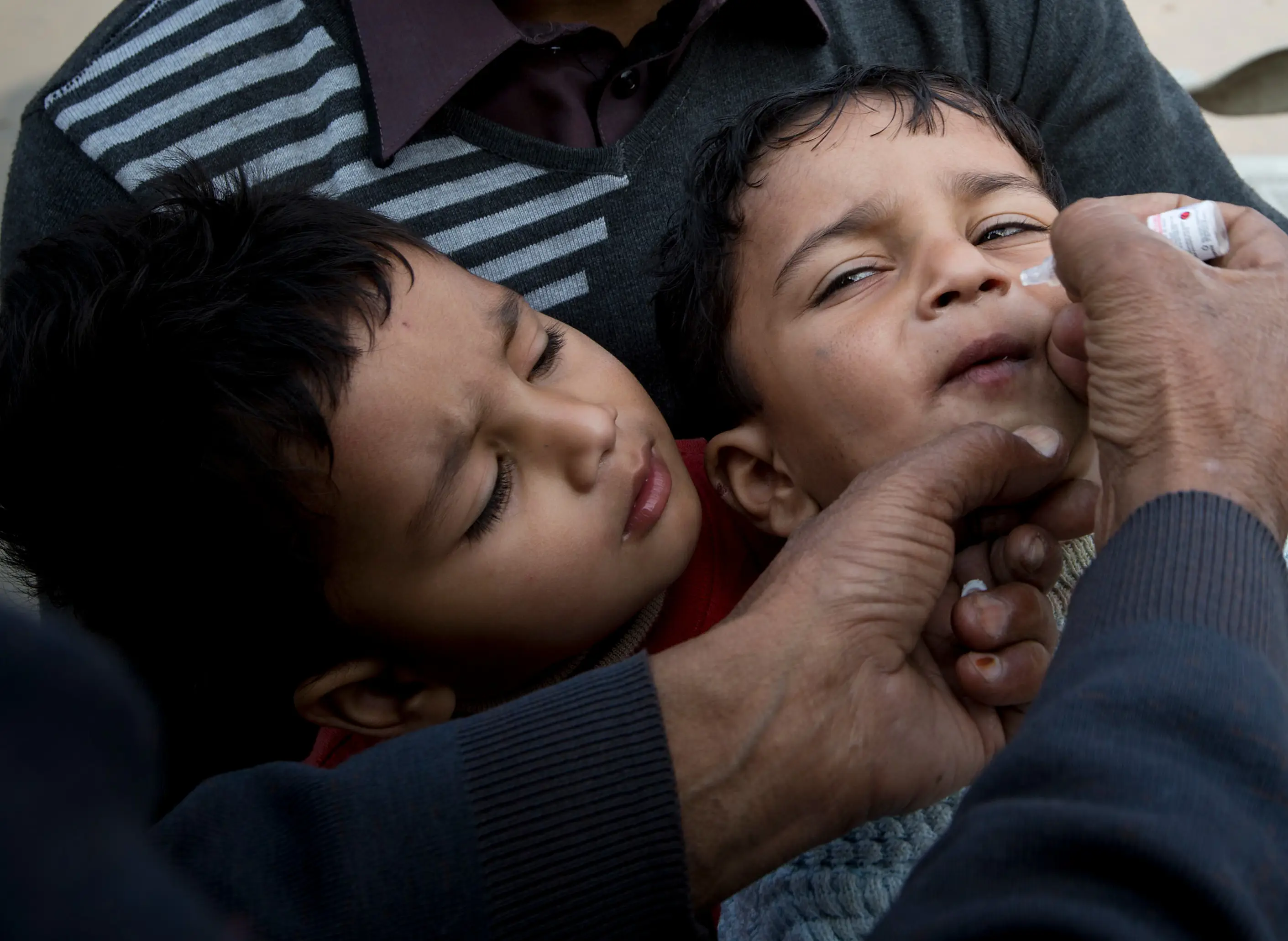
Key Takeaways
- Pakistan has made significant progress in combating polio through rigorous vaccination campaigns.
- Community engagement and outreach programs have played a vital role in addressing challenges and raising awareness.
- The nation is committed to eradicating polio and has outlined comprehensive strategies for future success.
Frequently Asked Questions (FAQ)
Q: How did the polio vaccine journey begin in Pakistan?
A: The introduction of the polio vaccine in Pakistan can be traced back to...
Q: What were the main challenges faced during the implementation of polio vaccination campaigns?
A: Some of the challenges included...
Q: Are the polio vaccination campaigns successful in Pakistan?
A: Yes, several successful campaigns have contributed to a significant reduction in polio cases.
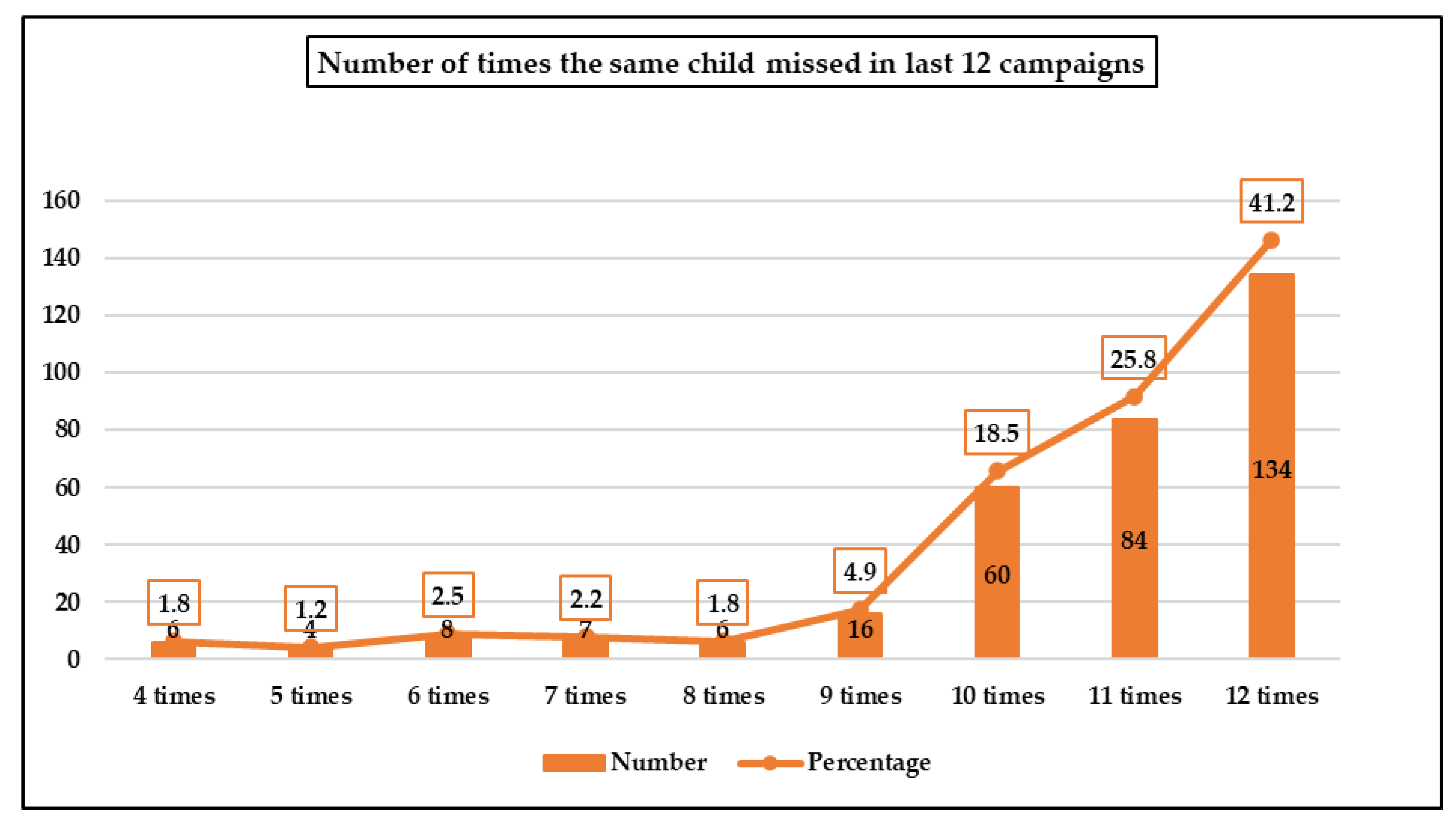


Recent Comments